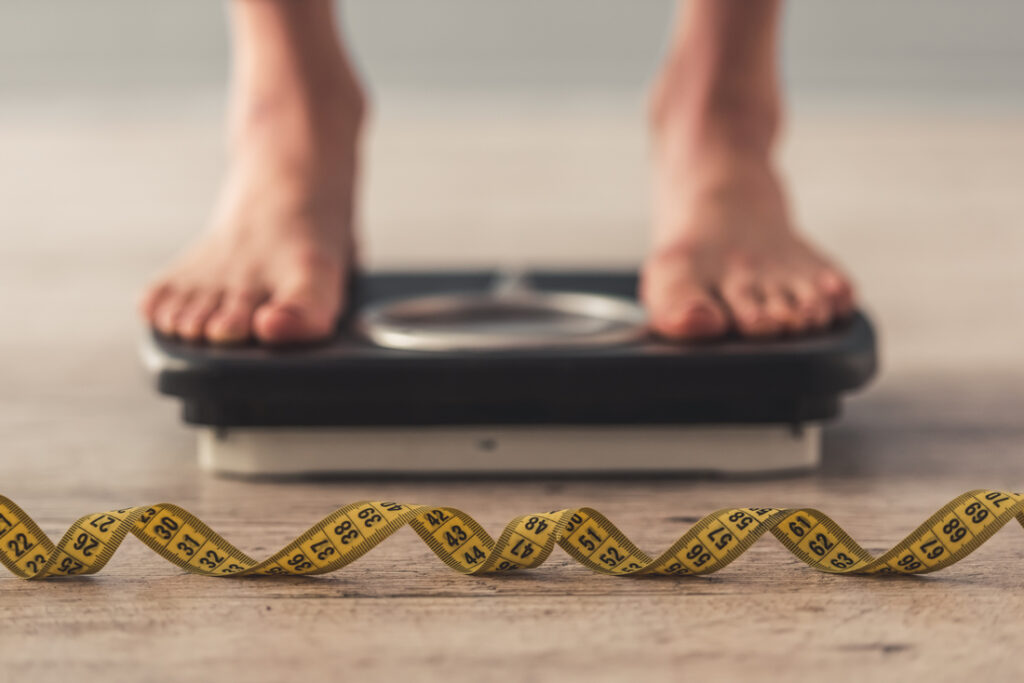
Intermittent fasting or IF
Intermittent fasting (IF) has been a growing trend for some time now, but the concept is still shrouded in mystery. What exactly is it? Is it an extreme weight loss option, or is it feasible? How should we approach it? What are the benefits?

Ask a specialist
To answer these questions and shed some light on how we should perceive this method of eating, we spoke to personal trainer Natalia López, a member of the Gympass wellness platform, to answer the main questions about intermittent fasting. However, she assures us that «Before starting intermittent fasting, I advise you to ask a specialist about your particular case».

It is not a diet
Intermittent fasting is not a diet, as in principle it does not involve reducing the number of calories consumed per day, but rather establishing periods of time between meals, creating time slots in which more than one meal can be eaten.

Healthy food
Although in principle it is possible to eat everything at these times, it is essential to eat healthy foods, avoiding processed foods and reaching the amounts of each macronutrient (carbohydrates, proteins, fats) that should be ingested, which vary from person to person, as well as vitamins and minerals.

Ordering calorie intake
Fasting is therefore a dietary regime that allows us to order our calorie intake to speed up our metabolism and make it more likely that our body, during those prolonged periods when we do not eat, will have to resort to the adipose tissues we have in reserve (body fat) to get the energy we need to continue functioning.

The benefits
The benefits of intermittent fasting are many, in that, if done correctly, it usually results in weight and body fat loss, and also improves our insulin sensitivity (which is positive for people with type 2 diabetes), increases our energy, lowers cholesterol, improves our intestinal tract and is an inexpensive and easy dietary regime that we can and should adapt to our routine.

Improves sleep habits
Intermittent fasting improves circadian rhythms and sleep habits, reduces abdominal fat and regulates the digestion process by giving our digestive system a break. According to the personal trainer, «circadian rhythms are responsible for regulating different physiological and mental states such as sleep and hunger.

The body and the hours
By intermittent fasting, the circadian cycle that regulates the fasting state can be adjusted so that the body adapts to eating at the same times. This will be important on a hormonal level, as it will improve the secretion of some important hormones for adequate physical performance, such as growth hormone and cortisol.

It also slows neurodegenerative processes
IF also slows down neurodegenerative processes: «According to studies, fasting helps these processes to occur more slowly. This is more likely to be related to following a diet with a slight calorie deficit, which is promoted by the practice of intermittent fasting.

Risks
It is essential to consult a specialist before starting any kind of fasting and always start with moderation. A very aggressive approach can cause a rebound effect, putting us back to square one or making us gain even more weight. «Fat loss is not just about fasting or not fasting.

Differentiating hunger from gluttony
We should use this technique to get our body used to differentiating between hunger and gluttony, avoiding overeating and getting the body used to making use of stored fat,» says the Gympass trainer. «It won’t do us any good if we get too full after fasting, in fact, it’ll actually crush our digestive system.

Fainting and low blood pressure
In that sense, this practice is not recommended for people who have suffered from eating disorders or suffer from anxiety or severe stress. It is also not recommended for minors, the elderly, pregnant or breastfeeding women. It should not be forgotten that too long a fasting period in which hunger is ignored can cause fainting or a sharp drop in blood pressure. «That’s why you should consult a professional to help you find the right approach,» says Natalia.






